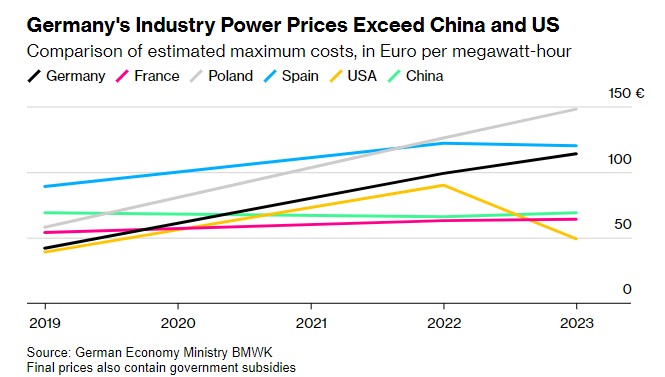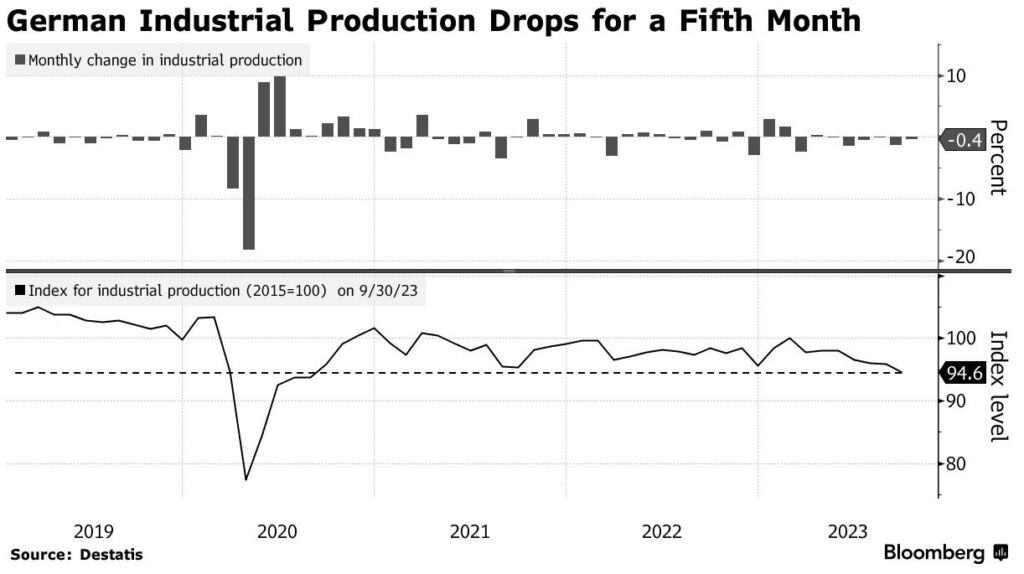German manufacturing firms pay much higher electricity prices than American firms
For years, Minnesotans were lectured by liberal energy advocates that we should be more like Germany, the nation that dogmatically built wind turbines and solar panels while shuttering its fleet of nuclear power plants.
However, to the extent that we have emulated Germany’s energy policy, it has been an expensive mistake. Now, high electricity prices in Germany are ravaging its famous manufacturing sector. If we enact similar policies, we will face similar consequences.
Germany’s industrial electricity prices
According to Bloomberg, industrial electricity prices are far higher in Germany than in the United States or China, as shown in the graph below.

Surging industrial electricity prices are so ruinous in Germany that the Government was forced to subsidize heavy industry to the tune of €28 billion from 2024 to 2027 by reducing electricity taxes for manufacturers — from €15.37 to €0.50 per megawatt-hour — as well as additional support for particularly energy-intensive firms.
The impact of rising energy prices is now apparent in the country’s manufacturing output data, according to Bloomberg:
Industrial production in Germany and Italy began the final quarter of the year with a stumble after France and Spain reported similar outcomes, pointing to a possible recession in the region.
Output in Europe’s biggest economy fell 0.4% in October from the previous month to the lowest level since August 2020, the German statistics office said Thursday. In Italy, production declined 0.2% from September.
Manufacturers — Germany’s economic backbone — are particularly affected by expensive energy, higher interest rates and weak global demand. Several big industrial firms have started cutting costs, and chemical maker BASF SE plans to reduce investment by almost 15% over the next four years.
The graph below shows German industrial output has fallen for five months in a row, reaching the lowest point since the COVID-19 pandemic.

Minnesota cannot afford to make the same mistakes as Germany because manufacturing is a heavy staple of our economy. In 2019, the industry accounted for $52 billion in the state’s economic activity, constituting 13.6 percent of total state GDP. The industry also employed 310,000 people in 2020, with an average annual compensation of $80,900.
By emulating Germany’s failed energy policy by signing a 100 percent carbon-free electricity by 2040 mandate, Governor Walz and other liberal lawmakers will be consigning our manufacturing sector to a similar fate.